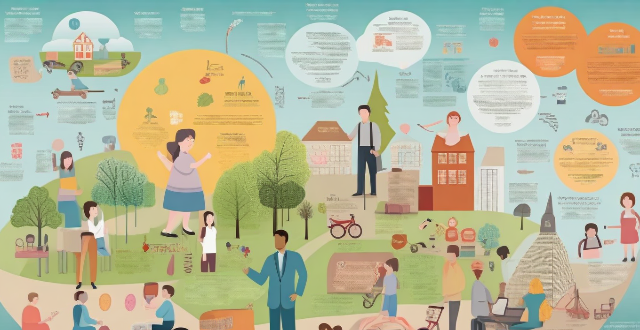Promoting public awareness and education about global health issues is crucial for improving the overall well-being of populations worldwide. There are several strategies that can be employed to achieve this goal, including using multiple communication channels, collaborating with influencers and celebrities, conducting public health campaigns, engaging with schools and universities, partnering with NGOs, developing interactive tools and applications, and hosting public seminars and workshops.

How Can We Promote Public Awareness and Education about Global Health Issues?
Promoting public awareness and education about global health issues is crucial for improving the overall well-being of populations worldwide. There are several strategies that can be employed to achieve this goal.
1. Use Multiple Communication Channels
To reach a wide audience, it is essential to use various communication channels such as:
- Social Media: Platforms like Facebook, Twitter, and Instagram can help disseminate information quickly and engage with people from different backgrounds.
- Traditional Media: Television, radio, and newspapers still play a significant role in shaping public opinion and can be used to raise awareness about global health issues.
- Digital Marketing: Online advertising, email marketing, and search engine optimization can help target specific demographics and increase visibility.
2. Collaborate with Influencers and Celebrities
Partnering with influencers and celebrities who have a large following can help spread the message more effectively. These individuals can use their platforms to share information, raise funds, and encourage others to take action.
3. Conduct Public Health Campaigns
Organizing public health campaigns can help create buzz around global health issues and encourage people to get involved. Some examples include:
- World Health Day: This annual event focuses on raising awareness about a specific health topic each year. It provides an opportunity to educate the public about global health challenges and promote healthy lifestyles.
- National Health Observances: Various countries have designated days or weeks to recognize specific health conditions, such as World AIDS Day or Breast Cancer Awareness Month. These observances can be used to educate the public about prevention, treatment, and support services available.
4. Engage with Schools and Universities
Educating young people about global health issues is essential for creating long-term change. Collaborating with schools and universities can help integrate global health topics into curriculums and encourage students to participate in related activities.
5. Partner with Non-Governmental Organizations (NGOs)
Working with NGOs that specialize in global health issues can help leverage their expertise and resources to promote public awareness and education. These organizations often have established networks and relationships with key stakeholders, which can facilitate effective outreach efforts.
6. Develop Interactive Tools and Applications
Creating interactive tools and applications can make learning about global health issues more engaging and accessible. Examples include:
- Online Quiz Games: These games can test users' knowledge on various health topics while providing instant feedback and explanations for incorrect answers.
- Virtual Reality Experiences: VR technology can simulate real-life scenarios related to global health issues, allowing users to experience them firsthand and gain a deeper understanding of their impact.
7. Host Public Seminars and Workshops
Organizing seminars and workshops can provide opportunities for experts in the field to share their knowledge with the public directly. These events can cover a range of topics, from disease prevention and management to advocacy and policy-making related to global health issues.